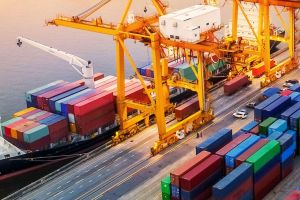This book provides the non-specialist reader with the background to understand the debates about trade.
Introduction
This book provides the non-specialist reader with the background to understand the debates about trade. It begins by briefly tracing the history of US support for trade, as well as the shifts in the manufacturing sector that helped inspire calls to “make America great again.” It also considers the particular challenges posed by China’s emergence as a trading power while calling into question popular thinking on the resultant “China Shock” to US manufacturing.
Key Findings
Once upon a time, there was centrist, bipartisan support for US leadership in crafting an open global trading system. Over recent decades, though, as trade grew more complex, the share of US workers in manufacturing fell, and China emerged as an economic power, that consensus dissolved. By the 2016 election, both major party presidential candidates opposed the Trans-Pacific Partnership, a trade agreement central to US economic and foreign policy.
Lest this opposition seem to represent a new consensus, it ushered in the recent period of political discord over trade. While some praised aggressive US actions to address trade deficits and national security concerns, others worried about the fraying of the global trading system and international markets lost to retaliatory barriers.
This book provides the non-specialist reader with the background to understand the debates about trade. It begins by briefly tracing the history of US support for trade, as well as the shifts in the manufacturing sector that helped inspire calls to “make America great again.” It also considers the particular challenges posed by China’s emergence as a trading power while calling into question popular thinking on the resultant “China Shock” to US manufacturing.
The book also offers an accessible guide to many of the esoteric topics that underlie today’s trade debates. It starts with tariffs, but proceeds to tackle issues such as trade deficits, intellectual property rights protection, rules of origin for goods, antidumping procedures, labor and environmental protections, and sovereignty.
Finally, the book offers ways to move beyond the impasse that had emerged by 2016. Rather than focusing on a specific agreement such as the updated NAFTA (USMCA), it looks at whether deals should be bilateral or multilateral, and just how transparent negotiations need to be. It divides some particularly contentious issues into those that are easily addressed, those that might be feasible with work, and those that are nonstarters.
While most of the work to restore a consensus would be difficult, the rewards would be great. The book concludes with a warning that the penalties for not restoring US leadership on trade could be severe.


